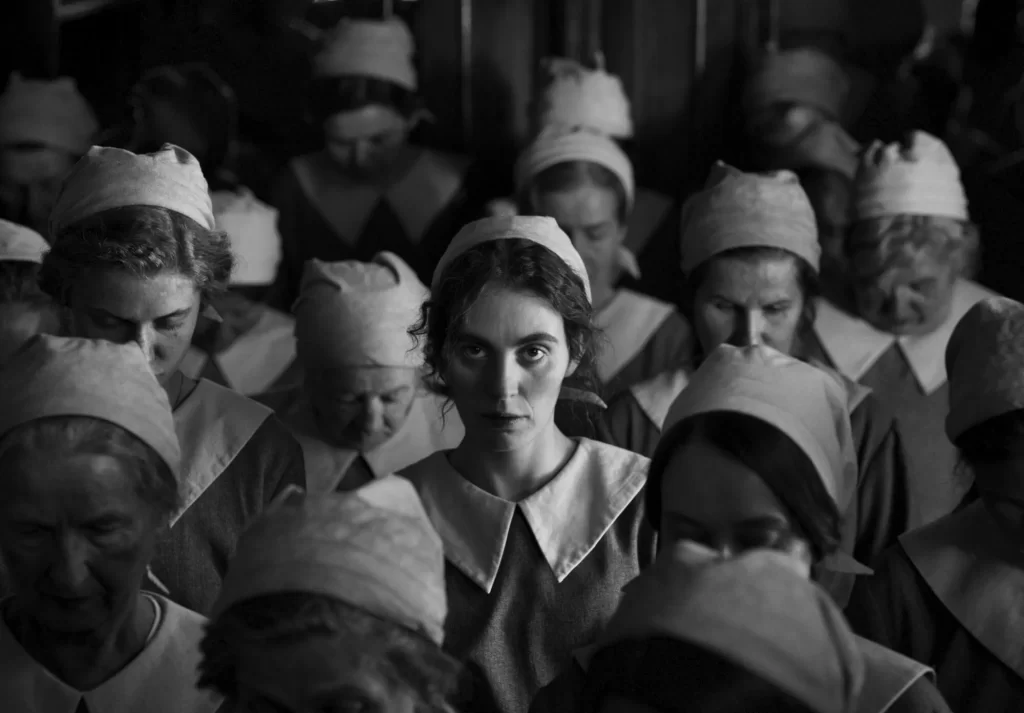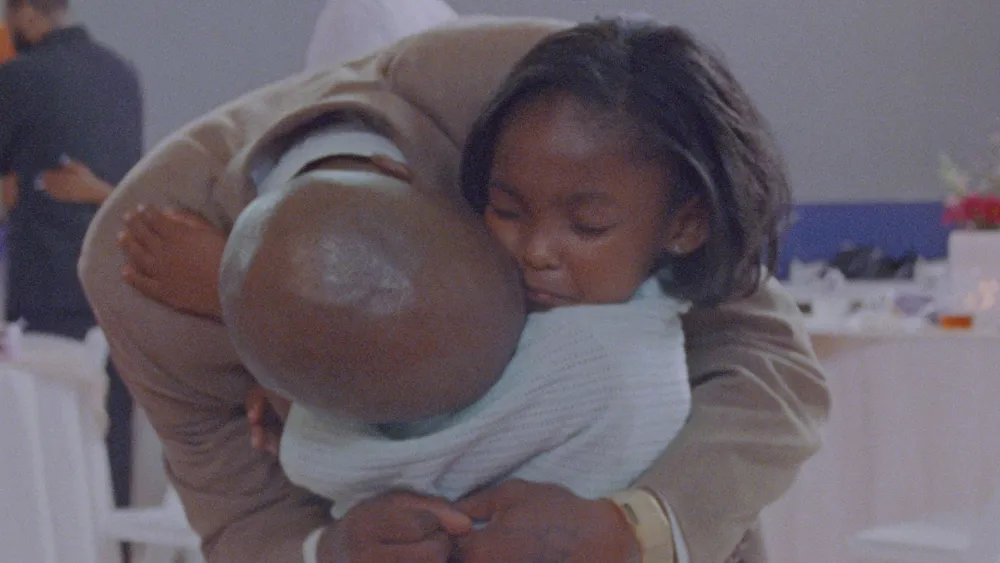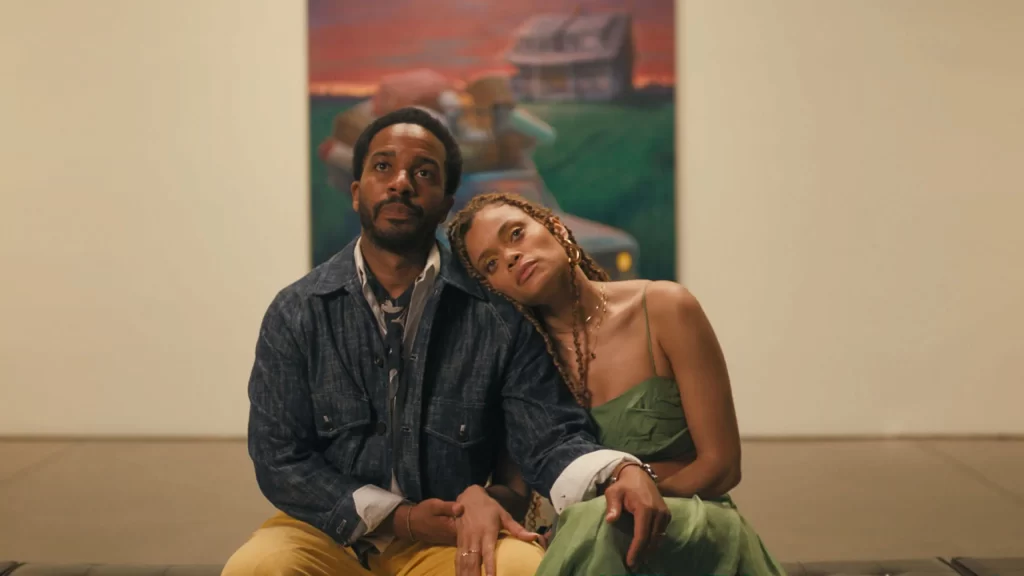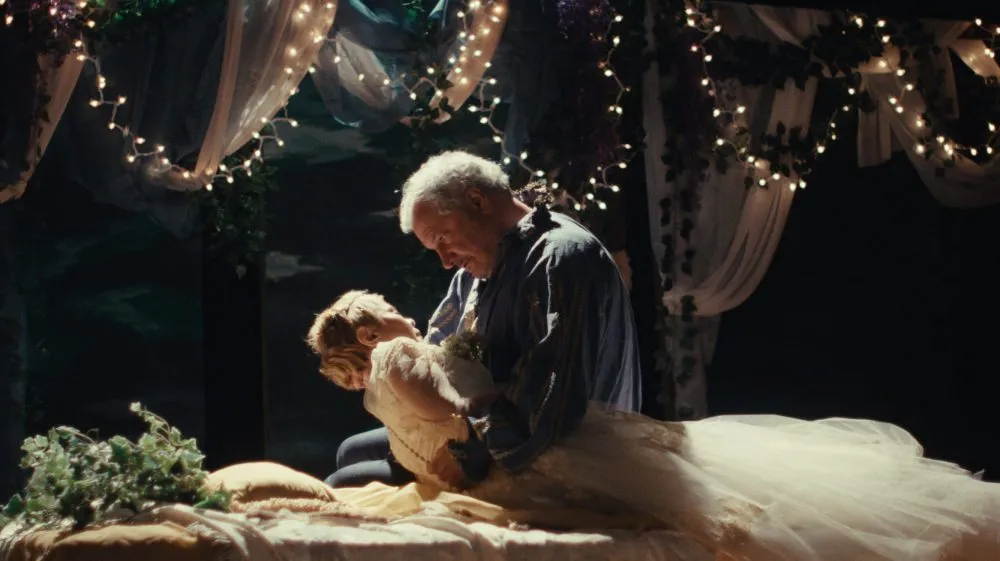10 Most Underrated Films of 2024
Most Underrated Films of 2024 | Adam Manery | As we close out another year of cinema, I wanted to shine a spotlight on a handful of films I believe deserve a bit more attention. While you can also check out my Top 24 of 2024, here are ten underrated gems that I hope will land on more watchlists.
Number 10: As We Speak
Directed by J. M. Harper, As We Speak had its world premiere at Sundance nearly a year ago. Before this project, Harper was known primarily for his work editing the jeen-yuhs: A Kanye Trilogy. In As We Speak, he explores the weaponization of rap lyrics within the criminal justice system, particularly in the United States, but also touches on similar concerns in the UK.
Rather than following a standard documentary format, Harper brings on real-life Bronx rapper Kemba—a charismatic and thoughtful personality—to serve as our guide. The result is a film that often feels more like a narrative feature than a documentary, thanks to engaging cinematography and stylized editing. There’s even an unforgettable sequence in which a group of drill artists performs Romeo and Juliet, reflecting how art, law, and self-expression can intersect in surprising ways. If you want a fresh take on how lyrics and creative works can be distorted by legal systems, As We Speak is definitely worth your time.
Number 9: Humane
The Cronenberg name typically conjures images of body horror, thanks to David Cronenberg’s classics (The Fly, Crimes of the Future) and his son Brandon’s work (Possessor, Infinity Pool). Enter Caitlin Cronenberg, who made her directorial debut with Humane. Though it briefly nods to her family’s horror roots, the comedy in this film sets it apart from the darker Cronenberg tradition.
Set in a near-future grappling with overpopulation, Humane follows a family forced to decide who among them “must go” to address a dire policy. Canadian star Jay Baruchel delivers a solid performance, but many of the best lines belong to Enrico Colantoni, whose comedic timing is pitch-perfect. Though it may not reach the iconic status of her father or brother’s top works, Caitlin has carved out a fresh perspective—one infused with humor and social commentary.
Number 8: Riddle of Fire
Directed by Weston Razooli, Riddle of Fire presents a whimsical story of three children embarking on an errand that leads them into a fantastical adventure. With one small misstep, this film could have crumbled under its own offbeat premise. Instead, it succeeds through a blend of childlike wonder, unorthodox line deliveries (particularly from Skyler Peters), and the director’s playful visual storytelling.
Expect makeshift weapons, mystical landscapes, and a dance sequence that might just be one of the most memorable of the year. Ultimately, Riddle of Fire feels destined for cult status, a true hidden gem in a crowded cinematic landscape.
Number 7: Porcelain War
Co-directed by Brendan Bellomo and produced by Paula DuPré Pesmen, Porcelain War documents how art endures—and even resists—amid the ongoing invasion of Ukraine. The film spotlights three Ukrainian artists, Ana, Slava, and Andre, whose delicate porcelain figurines become symbols of resilience in a war-torn environment.
Through macro shots of the Ukrainian landscape and scenes of destruction, the documentary examines how art can be both fragile and unbreakable. By continuing to create under such circumstances, these artists highlight the cultural erasure that often accompanies military conflict. Porcelain War stands out for its poignant juxtaposition of beauty and devastation.
Number 6: The Last Stop in Yuma County
Directed by Francis Galluppi, The Last Stop in Yuma County unfolds almost entirely in a single location—a modest restaurant and gas station—where unsuspecting patrons find themselves caught in the fallout of a bank-robbery escape. The film’s tension builds rapidly, with Galluppi demonstrating a confident handle on pacing and tone.
Aiding this atmosphere is the cinematography of Mac Fisken, who works within limited coverage (few angles, careful storyboarding) to maintain a pulsing sense of dread. The attention to genre tropes—think noir sensibilities and the corruption of the everyman—makes this debut worth keeping on your radar.
Number 5: The Girl with the Needle

From director Magnus von Horn, The Girl with the Needle is a striking black-and-white film steeped in German Expressionism. It draws inspiration from the true story of Danish serial killer Dagmar Overbye, but the focus is less on Overbye’s crimes and more on Caroline, a fictional character who unwittingly ends up working for her.
Themes of social structures and gender roles hover beneath the surface, creating an ominous atmosphere reinforced by surreal visuals and a discordant score. The result is an unsettling modern fairy tale—one that might pair nicely with the year’s new Nosferatu adaptation, if you’re in a mood for haunting European-inspired cinema.
Number 4: Small Things Like These
With limited buzz in North America, Small Things Like These marks the first production from Cillian Murphy’s company, Big Things Films. Murphy stars as a coal merchant who discovers unsettling truths about Ireland’s Magdalene Laundries. Rather than detailing those atrocities at length, the film keeps its focus on the emotional strain on Murphy’s character.
Shot in a muted palette, its sleepy Irish town is perpetually cloaked in fog, mirroring the internal turmoil. It’s a measured story that some may find slow, but it rewards those willing to linger on the protagonist’s moral quandary and sense of grief.
Number 3: Daughters

Directed by Natalie Ray and Angela Patton, Daughters is a Netflix documentary that follows the daddy-daughter dance program in a men’s prison. This initiative requires incarcerated fathers to complete a 12-week course before reuniting with their daughters in a formal dance event.
The film interweaves the stories of daughters navigating life without their fathers and the men grappling with emotional vulnerability. It’s an openly tear-jerking experience that spotlights generational trauma, regret, and the complexities of fatherhood. Although it briefly appeared on some Netflix homepages, Daughters has all but faded into the streaming service’s algorithm—a genuine shame for such a moving documentary.
Number 2: Exhibiting Forgiveness

A standout from this year’s Sundance lineup, Exhibiting Forgiveness lingered in distribution limbo most of the year. Directed by Titus Kaphar, it stars André Holland and John Earl Jelks as a painter and his father, respectively, navigating a difficult reunion. The son processes his childhood traumas through art; the father returns, unsure how to seek redemption.
The nuanced performances refuse easy resolutions, reflecting Kaphar’s own experiences. Rather than dictating whether one should forgive, the film presents a heartfelt glimpse of one family’s search for healing, underscored by the power of artistic expression.
Number 1: Ghostlight

Topping the list is Ghostlight, a small indie project shot and edited in just one month on a budget reportedly under one million dollars. Remarkably, it made the Sundance 2024 cutoff. The film’s father-daughter leads—actual father and daughter in real life—deliver unpolished but deeply authentic performances as a family mourning the loss of a son.
The father, Dan, stumbles into a local theater group’s production of Romeo and Juliet, grudgingly takes on a role, and ultimately draws his daughter into the performance. Though it sounds like a Hallmark premise, the raw emotion, exploration of male vulnerability, and a nuanced portrayal of grief ground Ghostlight in palpable realism. A memorable supporting role by Dolly de Leon (of Triangle of Sadness fame) adds extra depth. Now available on Amazon Prime Video or for rental, Ghostlight deserves the attention of anyone seeking poignant drama on a modest scale.
Most Underrated Films of 2024




Pingback: Sundance Film Festival 2025 Award Winners - Points of Review | Film Reviews
Pingback: Family, Grief, and the Crypto Sink: $POSITIONS w/ Brandon Daley